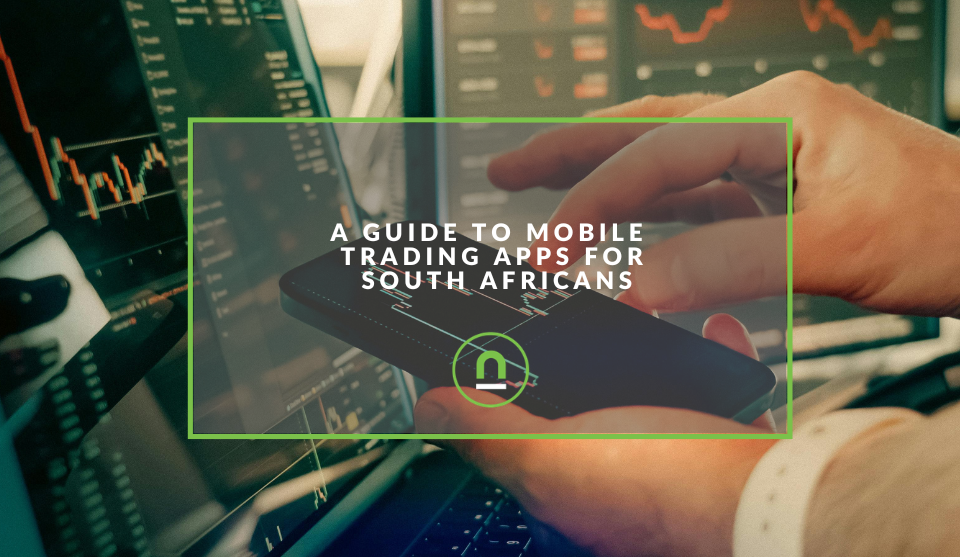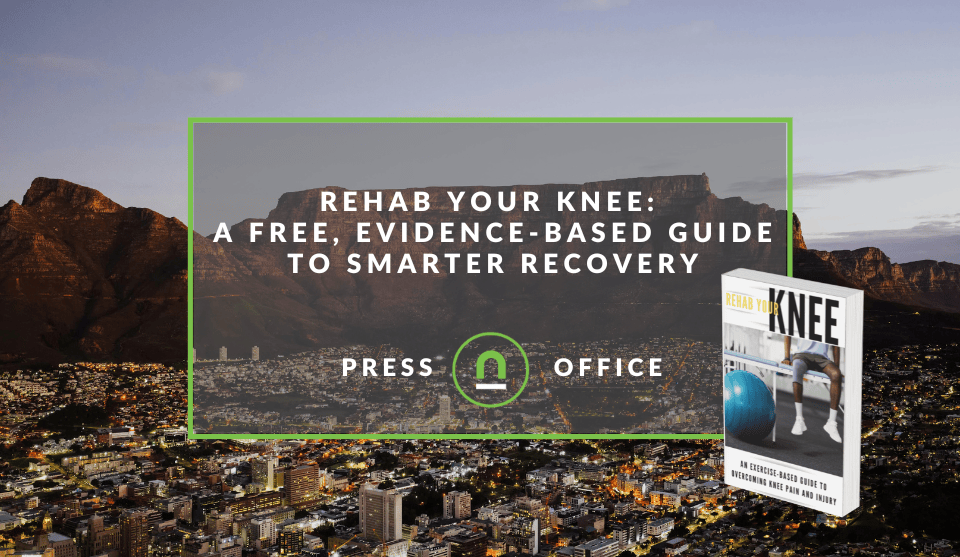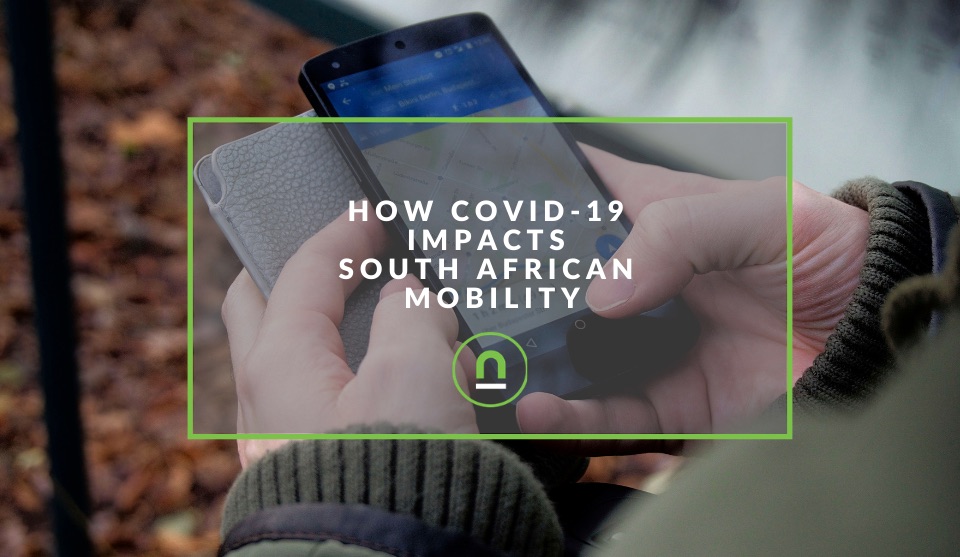Recent posts

Athletes
Peptide Use for Muay Thai Training
23 February 2026

Money Talks
A Guide To Mobile Trading Apps for South Africans
19 February 2026

Press Releases
Rehab Your Knee: A Free, Evidence-Based Guide to Smarter Recovery
12 February 2026

Money Talks
XRP vs. Stablecoins: Which Is Better for Cross-Border Payments in 2026?
28 January 2026
Popular posts
Extravaganza
Trending Music Hashtags To Get Your Posts Noticed
24 August 2018
Geek Chic
How To Fix iPhone/iPad Only Charging In Certain Positions
05 July 2020
Extravaganza
Trending Wedding Hashtags To Get Your Posts Noticed
18 September 2018
Money Talks
How To Find Coupons & Vouchers Online In South Africa
28 March 2019
How COVID-19 Impacts South African Mobility
29 December 2020 | 0 comments | Posted by Che Kohler in nichemarket Advice
If you don't already realise this, then perhaps this data set should be a wake-up call to the amount of data Google has on the entire planet. It can source from billions of web queries, google map views, Android app location data and 3rd party services using various Google-owned tools.
I think it's safe to say that Google sure does a lot of tracking, so it's no wonder they would be able to provide us with data sets on how peoples travel behaviours have changed throughout 2020.
The psychological impact of the pandemic, the lockdowns and the now established shelter in place and social distancing safety measures have changed the way South Africans view leaving home. But how much has that changed the way we interact with the world?
Well, Google was kind enough to provide us with a look into their data sets, which they were able to produce on South Africa.
- Should you wish to check out the data yourself, or view other countries data, you can find it here.
- You can also download the full report here.
South African mobility data for 2020
| Retail & Recreation | Supermarket & Pharmacy | Parks | Public Transport | Work Places | Residential | |
|---|---|---|---|---|---|---|
| South Africa | -67% | -54% | +3% | -59% | -83% | +27% |
| Eastern Cape | -71% | -51% | +32% | -56% | -83% | +29% |
| Free State | -70% | -57% | -9% | -61% | -82% | +23% |
| Gauteng | -70% | -56% | -34% | -59% | -84% | +26% |
| KwaZulu-Natal | -65% | -50% | +18% | -61% | -82% | +32% |
| Limpopo | -32% | -32% | +84% | -41% | -79% | +25% |
| Mpumalanga | -56%l | -46% | +48% | -43% | -83% | 26% |
| North West | -62% | -57% | +24% | -16% | -80% | +25% |
| Northern Cape | -76% | -73% | -13% | -57% | -78% | +24% |
| Western Cape | -72% | -61% | -23% | -64% | -83% | +27% |
About this data
These reports show how visits and length of stay at different places change compared to a baseline. Google then calculates these changes using the same kind of aggregated and anonymised data used to show popular times for places in Google Maps.
Changes for each day are compared to a baseline value for that day of the week:
- The baseline is the median value, for the corresponding day of the week, during the five weeks 3 Jan – 6 Feb 2020.
- The reports show trends over several weeks with the most recent data representing approximately 2–3 days ago (this is how long it takes to produce the reports).
The data included in the calculation depends on user settings, connectivity and whether it meets our privacy threshold. If the privacy threshold isn't met (when somewhere isn't busy enough to ensure anonymity) we don't show a change for the day.
Google includes categories that are useful for social distancing efforts, as well as access to essential services.
Google then calculates these insights based on data from users who have opted into Location History for their Google Account so that the data represents a sample of our users. As with all samples, this may or may not represent the exact behaviour of a wider population.
Google has stated that it will continue to improve our reports as places close and reopen. We updated how we calculate changes for groceries and pharmacy, retail and recreation, public transport stations and parks categories.
For regions published before May 2020, the data may contain a consistent shift (up or down), starting between 11–18 April 2020.
Why is mobility data important for South African businesses?
The changes in the way South Africans choose to move around, engage with businesses and spend their money all stems from their new user behaviours. These behaviours won't soon change even after lockdowns have come and gone, are likely to remain within the consumer's psyche. South African businesses will need to adapt to their new customer behaviour and leverage data to sustain their business.
Tailored experiences
Depending on your business niche, consumers may want to opt for a less crowded area, so offering a boutique experience versus the big box store option can be a unique selling point that resonates with your customer base.
Visitor frequency
Looking at the limited movement, you may also want to focus your advertising on days before or the most popular days that consumers do decide to leave the house.
Localised targetting
You may want to tailor your ads and promotional activities to be hyper localised and try to reach your closest customers, to build a consumer base of those who are now less likely to travel further to get what they want.
Consumers will now have a distance bias more than a cost bias, so whereas customers may have been willing to travel further to get the lowest price, now they may want to get in and out, being more price agnostic.
Delivery options
Your business will also need to focus on pushing the delivery or brining services to the customer in-house. Content marketing and advertising should focus on education of the adapted offerings, their safety, how it works and how far you're services reach in a particular area.
Virtual options
As an alternative to delivery, if you're a service-based business, such as a consultant or therapist, you could migrate to a virtual solution for some consumers. Making sure the option is evident in all your marketing, from email signatures, newsletters, your website and even above the line branding like your vehicles can make all the difference to consumers.
Playing up the stay at home experience
As consumers tend to want to shelter in place, you may need to adapt your product offering or play up its ability to be done at home. For example, beauticians can, instead of losing a sale, create home beauty kits they can sell to customers with the option to do it themselves, come into the store or have a home treatment done. Taking your traditional offering and splitting into three options giving different customers the opportunity they like best instead of losing out on the sale entirely.
Prime real estate in parks
As we can see from the data, one of the areas seeing a bit of uplift are parks and open recreational facilities. Depending on your niche advertising such as billboards, benches or setting up kiosks in these new traffic areas could make all the difference in redirecting consumers to your business.
Contact us
If you would like us to improve the advertising for your site or want to know more about digital marketing for your business, then don’t be shy we’re happy to assist. Simply contact us
Are you looking to promote your business?
South African Business owners can create your free business listing on nichemarket. The more information you provide about your business, the easier it will be for your customers to find you online. Registering with nichemarket is easy; all you will need to do is head over to our sign up form and follow the instructions.
If you require a more detailed guide on how to create your profile or your listing, then we highly recommend you check out the following articles.
Recommended reading
If you enjoyed this post and have a little extra time to dive deeper down the rabbit hole, why not check out the following posts on content marketing.
- A Quick Guide To Content Repurposing
- Creating Content in Times of Pandemic
- Trends In Covid-19 Affected Organic Search Results
- Content Marketing Strategies For A Post-COVID Future
- Your SMEs Survival Guide To Overcome The Impacts of COVID-19
- What Does The Post COVID Consumer Look Like?
Tags: Consumer Behaviour , Covid-19
You might also like
Peptide Use for Muay Thai Training
23 February 2026
Posted by Che Kohler in Athletes
As a Muay Thai fighter, you will have your fair share of knocks and injuries, which means a robust recovery protocol will make all the difference in ...
Read more80% of Gen-Zers Would Marry an AI
19 January 2026
Posted by Steph M in Press Releases
Experts reveal why AI relationships are getting serious, and the reasons why 4 in 5 young people are open to marrying ai as human dating becomes too ...
Read more{{comment.sUserName}}
{{comment.iDayLastEdit}} day ago
{{comment.iDayLastEdit}} days ago
 {{blogcategory.sCategoryName}}
{{blogcategory.sCategoryName}}

